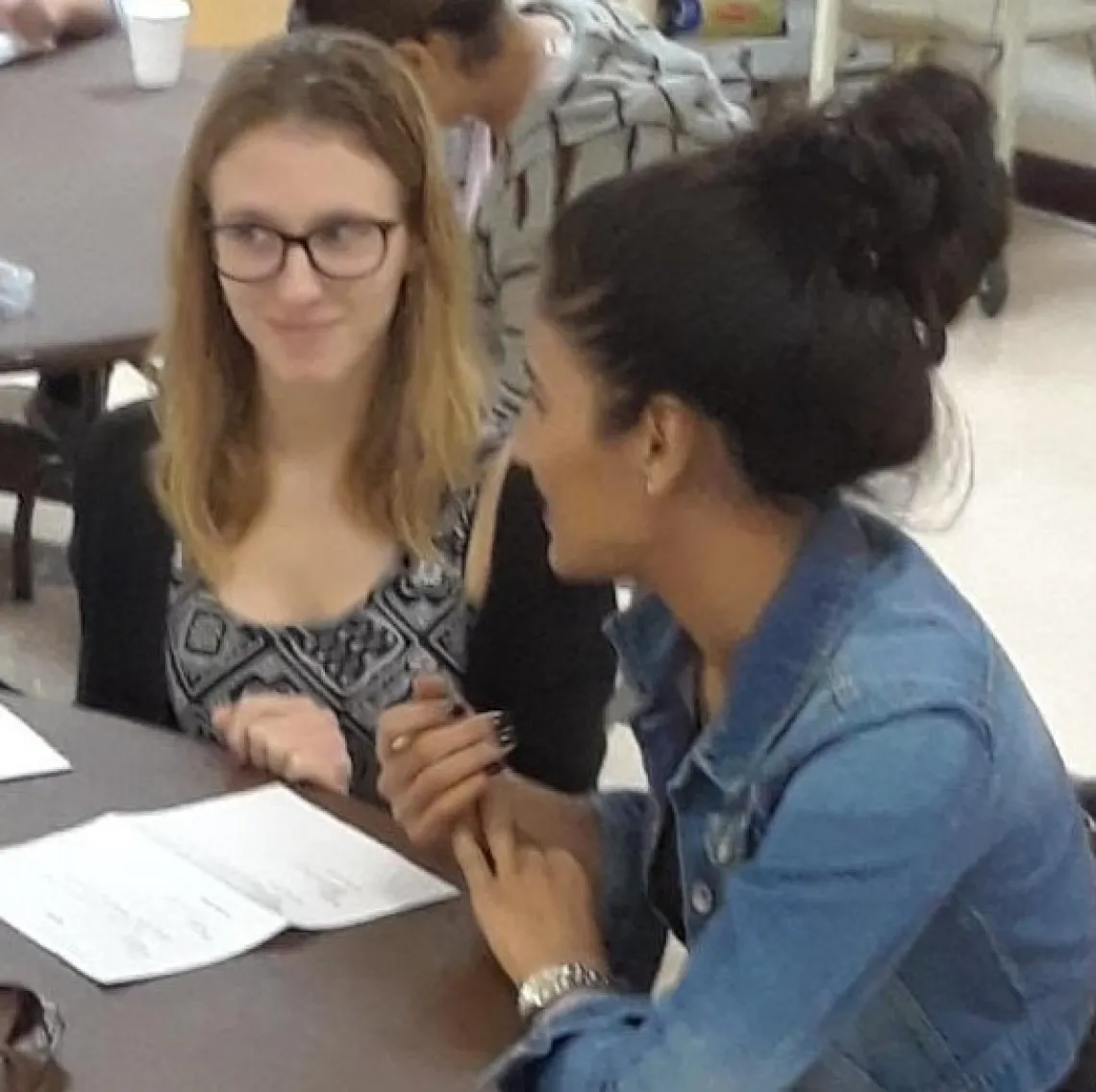Opening Opportunities through Language Learning

By Elizabeth Labiner
Amanda Snell is in her third year of the PhD program in Second Language Acquisition and Teaching (SLAT), but already has more than a decade of experience teaching students of all education levels, supporting underrepresented and underserved communities, and increasing access and opportunity for all -- particularly refugees and non-native language learners.
Even as she studies for her comprehensive exams, Snell sees teaching as her major motivation. Though she enjoys the many interdisciplinary aspects of the SLAT program, she says, “I’m always thinking about what I can take from my program and apply to my teaching. I’m particularly interesting in teaching at the community level, working with adult learners and family literacy, particularly for adults and families with immigrant and refugee backgrounds.”
Snell’s interest in teaching began while she was working for a non-profit in Indianapolis that focused on family literacy and English-language learning. “I came [to the University of Arizona] because I wanted to do a better job at teaching,” she says. Currently, along with her teaching at the university, Snell teaches classes at the Family Resource Centers for Tucson Unified School District. Many of her students there, she notes, are parents who are working to learn or improve their English so that they can be more engaged with their child’s schooling and school community, as well as their own wider community.
Knowing the motivations of their English-language-learning students is vital for teachers, Snell emphasizes. The relationship between students and teachers is very different in community teaching, she reflects, without the distance that’s sometimes kept between university instructors and their students. “Here at the university, we take it for granted that we all know what it’s like to be a student and are comfortable in the classroom. But that’s not the case all the time in [English-language] classes, so being aware of that is important. You’ve got to create a welcoming, safe environment.” Additionally, she notes, teachers must “remember that [adult students] might be beginning language learners, but they’re not beginning thinkers. They have so many experiences that they’re bringing to the classroom, and it’s important to find ways to capitalize on their wealth of experience.”
Snell’s own wealth of experience was recently shared in a series of on-campus trainings, “Teaching and Tutoring Adult Language Learners with Refugee and Immigrant Backgrounds: A Practical Introduction,” that she co-led with Jenna A. Altherr Flores, Kate Van Roekel (ELAA Teacher Education and Training Coordinator, Literacy Connects) and Lissa Fogel (Advanced Program Coordinator, Pima Community College Refugee Education Program). The trainings covered teaching strategies for helping adults develop oral, reading, and writing skills, and particularly focused on teaching beginning-level language learners; they also addressed refugee resettlement, culture, literacy development, trauma/resilience, and teaching strategies. This is another area where Snell excels: spreading knowledge and empowering others to teach in the community. She is most happy when those with whom she works are able to use their new skills to tackle their own areas of interest, such as community health, art, or aiding victims of domestic violence.
Even as she teaches other teachers, Snell is rooted in a mindset of reciprocal learning. “It’s not a mindset of just ‘what can I do?’” she says, “but also about what everyone else can teach me.”
If you’re interested in teaching English in the Tucson community, Snell encourages you to contact her at amandasnell@email.arizona.edu.
To learn more about the Family Resource Centers for TUSD, including their classes, visit their website at http://www.tusd1.org/Departments/Family-Centers.

